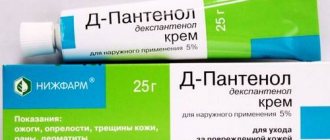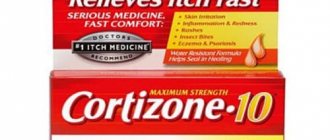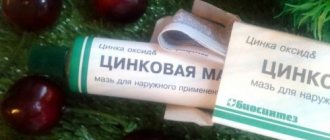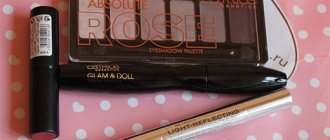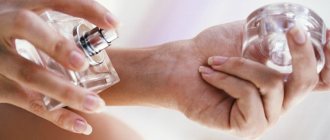Heparin ointment, when applied to the skin, has a complex effect: it eliminates pain, swelling and inflammation, and prevents the formation of blood clots. But when using this drug, the development of side effects is possible, since heparin actively affects the blood coagulation system. One of them is an allergy to Heparin ointment.
Manufacturers of medications insist that every potential consumer should read the instructions before using any pharmaceutical product. It lists indications and contraindications, possible side effects that can be avoided if you use the product as prescribed by a doctor, without resorting to amateur activities.
What is contained in heparin ointment?
The active component of heparin ointment is a direct anticoagulant - heparin. This medicinal substance, when absorbed through the skin, leads to the resorption of hematomas, elimination of swelling and reduction of inflammatory processes in soft tissues. It also eliminates the risk of thrombosis in varicose veins of the lower extremities.
The basis of heparin ointment is Vaseline, which gives this form of medicine elasticity and ease of application.
The auxiliary complex of components is provided by the following components:
- benzocaine (has a local anesthetic effect, relieving pain);
- glycerin (provides stability of heparin ointment);
- benzyl nicotinate (promotes the penetration of heparin through the skin due to dilatation of the capillary network);
- peach oil (provides an additional anti-inflammatory effect);
- nipagin (acts as a preservative, ensuring a long shelf life and preservation of medicinal properties).
Instructions for use of Heparin ointment
This ointment is prescribed to adult patients, and the doctor clearly stipulates the method of use and recommended dosage. So, for thrombophlebitis of the superficial veins on the arms and legs, it must be applied to the affected area and gently rubbed into the skin.
For hemorrhoids, Heparin ointment is applied directly to the hemorrhoids and secured with a bandage. Also, using a tampon, it can be used rectally, that is, inserted into the anus. This medication is taken for 3 to 7 days, but the duration of therapy may be delayed on the recommendation of a specialist.
When can heparin ointment be used and when not?
There are indications and contraindications for the use of any medications. To avoid side effects or unwanted effects, you should take some time to study the instructions and follow their instructions.
Indications:
- signs of varicose veins of the lower extremities (including trophic ulcers);
- phlebitis and thrombophlebitis (including post-injection);
- chronic hemorrhoids (including the inflammatory process of hemorrhoids in the postpartum period);
- signs of lymphatic insufficiency (elephantiasis, lymphangitis of any etiology);
- various injuries accompanied by the development of hematomas, infiltrates and edema.
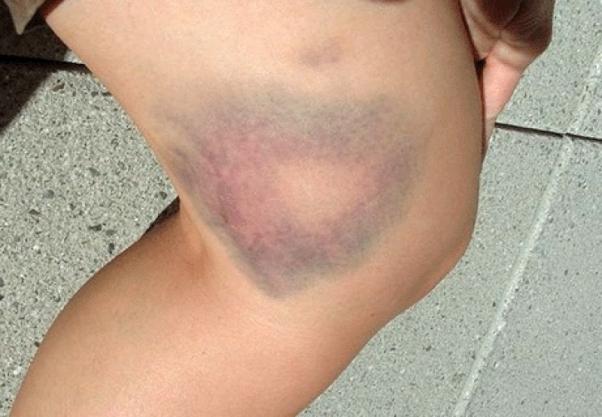
Among the contraindications are the following:
- violation of the integrity of the skin (scratches, cracks, wounds, abrasions, including those accompanied by purulent inflammation);
- pathology of the coagulation system (history of bleeding, the presence of hereditary thrombophilias);
- arterial hypertension stages 2 and 3;
- peptic ulcer of the stomach and duodenum (history of erosions and ulcers, as well as during exacerbation);
- liver failure (liver cirrhosis, tumor processes).
Heparin ointment should be used with caution during menstruation, as well as in pathological conditions of the female genital organs, accompanied by heavy blood loss. In this situation, only a doctor can determine the need for treatment with heparin ointment or choose an alternative route.
Indications and contraindications for use
The remedy is included in the treatment program to eliminate the following diseases:
- varicose veins (at different stages);
- thrombophlebitis;
- bruises (of various origins);
- haemorrhoids.

There are contraindications for the medication, which are taken into account at the time of examination.
You will have to stop using the drug if you have a history of:
- the presence of cracks, ulcers and bleeding on the skin (including the anus);
- pathologies associated with decreased clotting processes;
- peptic ulcer (in addition to thrombophlebitis);
- hypertension;
- stomach ulcer;
- liver pathologies (cirrhosis).
For women, gynecological diseases, as well as the period of menstruation, are contraindications.
Heparin ointment cannot be part of the therapeutic process against bruises and contusions if the skin has purulent wounds, redness and necrotic tissue damage.
Why does an allergic reaction to heparin ointment occur?
Modern experts increasingly point to such a side effect of heparin ointment as an allergic reaction. Previously, it was believed that the drug was not capable of causing such a pathological process, but numerous experiences by clinicians indicate the opposite.
Benzyl nicotinate, which is part of heparin ointment, causes dilatation of small vessels, increasing the permeability of the vascular wall. Due to this effect, heparin is actively absorbed through the skin into the blood. Stimulation of the production of active substances bradykinins is caused, which in turn stimulates mast cells, which release a significant amount of inflammatory mediators. Thus, a cascading allergy to heparin ointment is triggered.
In addition, the application of ointment to skin with various damage leads to increased sensitization of the body. The presence of cracks, scratches, wounds and trophic ulcers contributes to the appearance of a more vivid and pronounced picture of the allergic reaction.
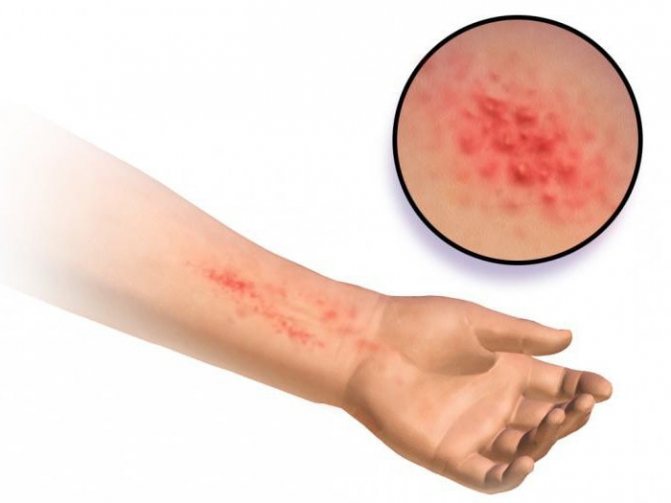
It is very important to spread the medicine onto intact surfaces.
Features of using the ointment
Use Heparin ointment with caution in the treatment of hemorrhoids in pregnant women, patients with thrombocytopenia and a tendency to hemorrhage. It is not recommended to apply to open wounds and should be stored in a cool, dry place.
Does not affect the ability to drive vehicles. It is allowed to engage in work activities with increased concentration.
There are also some restrictions regarding drug interactions. Thus, anticoagulant and non-steroidal anti-inflammatory drugs enhance the effect of Heparin ointment, but tetracyclines, nicotine and antihistamines, on the contrary, significantly weaken its effect.
How does an allergy to heparin manifest?
The symptoms of an allergy to heparin ointment are similar to any other allergic reaction. There can be different variations, including anaphylactic shock.
The more common form of allergy is characterized by the following symptoms:
- itching;
- redness;
- edema;
- peeling;
- the appearance of blisters.
That is, at the site of exposure, a clinical picture of urticaria develops, which may have a confluent nature. If, after applying heparin ointment, a feeling of itching and hyperemia developed, which self-limited within a few minutes, then this is not an allergic reaction.
More severe forms of an allergic reaction include conjunctivitis, rhinitis, bronchospasm and Quincke's edema. Any manifestation of an allergy requires seeking specialized medical help.
Causes of allergies
Heparin ointment is not a drug that can cause severe allergic reactions in a wide range of people. Typically, this remedy is well tolerated by the body, without causing any serious problems or unpleasant clinical manifestations, so it is generally considered harmless. But, despite this, if the rules for using the drug are violated, for example, an overdose, or an individual reaction of the body, sometimes it is not possible to avoid allergies.
Experts explain the occurrence of allergies by the ability of heparin to synthesize the hormone bradykinin. This substance can lead to tissue swelling, the development of an inflammatory process, swelling of the nasopharynx and even anaphylactic shock. All this is due to the pathological activity of mast cells, which, for their part, activate even greater production of bradykinin. This can explain the allergic process that occurs in response to the use of ointment.
It should be noted that not in all cases the body’s negative reaction is of allergic origin. The instructions for the drug indicate that it contains nicotinic acid - benzyl nicotinate. This substance, when interacting with the skin, causes a violent reaction in some people, very similar to an allergic one. But in this case, the symptoms that occur immediately after applying the product to the skin disappear quite quickly and do not require any intervention.
How to act if there are signs of allergies?
When unforeseen situations arise, a lot of questions arise - what to do, where to go and how to help? If, after applying heparin ointment, a characteristic symptom complex appears - hyperemia, swelling, skin itching, peeling, or a more severe reaction develops, it is important to immediately stop applying the medicine. The area where the ointment is applied should be washed with plenty of water. Perhaps after these manipulations all manifestations will pass without additional effort.
If rinsing turns out to be an insufficient way to relieve allergies, it is recommended to seek specialized medical help. The use of various soothing tinctures or alcohol-containing substances is strictly contraindicated.
Traditional medicine may be used in consultation with a doctor as part of a complex treatment.
Symptoms and treatment of an allergic reaction
Manifestation of a negative reaction when using Heparin ointment:
- skin redness;
- hives;
- burning;
- itching sensation of varying intensity;
- hyperemia of the skin;
- tissue swelling.
It is important to remember here that these symptoms are not always a consequence of the development of an allergic reaction. The ointment contains a component such as nicotinic acid. When this substance interacts with inflamed skin, it can become even more inflamed and a burn may occur.
First of all, you need to immediately stop treatment with Heparin ointment. Wash off any remaining ointment with cool water. If the skin burns very strongly, the affected areas should not be cleaned using alcohol formulations (lotions, tinctures). In the event that symptoms do not disappear after the measures taken, you need to seek medical advice.
If treatment is required, all measures must be carried out comprehensively.
The medications include antihistamines - tablets Terfenadine, Astemizole, Akrivastine, Loratadine, Ebastine, Levocetirizine; ointments - Epidel, Protopic.
You can also use Bepanten and Panthenol.
Traditional medicine in this case is not the main, but an additional element of treatment.
Decoctions, teas and infusions made from:
Video from an expert:
How to treat an allergic reaction to heparin ointment?
After a thorough questioning and examination, the doctor makes a diagnosis and prescribes comprehensive treatment for the disease. Since not all patients have a phenomenal memory, especially for medical terms and drug names, it is very important to record in a notebook or other familiar medium that an allergy to heparin has occurred.
To relieve various types of allergy manifestations, tableted antihistamines, local remedies are used, and traditional medicine can be recommended. In more severe situations, doctors have glucocorticoid drugs and desensitizing injection forms in their arsenal.
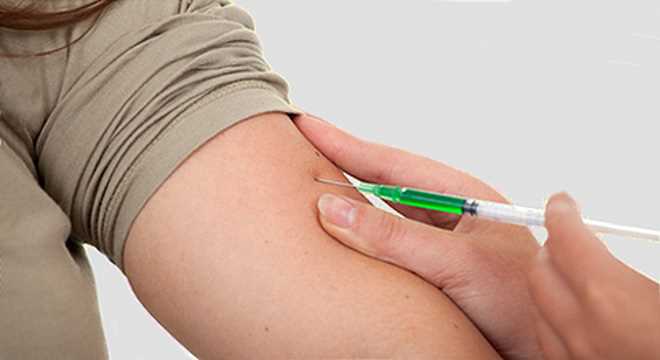
The choice of treatment tactics is made by a specialist, so to completely relieve the allergic reaction, you must follow all recommendations.
Side effects and overdose of Heparin ointment
Heparin ointment adapts well to a sick body, but side effects also occur in medicine. Allergic reactions occur, which manifest themselves in the form of itching, redness and swelling of the skin, but such anomalies disappear immediately after discontinuation of this treatment. In such cases, they do not resort to repeated use; the doctor simply prescribes another treatment with a more gentle effect.
Low absorption of Heparin ointment eliminates cases of overdose.
How does an allergic reaction occur in pregnant women?
The body of a pregnant woman is in a state of severe immunosuppression, which ensures the continuation of pregnancy. In addition, at a later stage, symptoms of venous insufficiency in the legs may develop, and hemorrhoids may also develop. Therefore, heparin ointment is often prescribed to eliminate problems with the venous system.
Allergic reactions in pregnant women develop much more often, which is due to the physiological course of pregnancy. Even if a woman was not prone to allergies before, she is likely to develop a pathological condition to the drug. It is very important to carry out the drug sensitivity test according to the instructions. When, when applying a small amount of ointment to the inner surface of the forearm, there are no signs of allergy, you can continue applying the ointment to the affected area.
Otherwise, you should avoid applying the ointment to your legs or rectal area and look for alternative methods of treatment.
Allergy symptoms
The body's reaction to heparin is not excluded when this ointment is prescribed locally. This drug is valued for its anticoagulant properties, which prevent thrombosis and serious conditions such as stroke and myocardial infarction. Heparin ointment is prescribed for vascular diseases of the lower extremities of an inflammatory nature, for bruises, hematomas, hemorrhoids and other diseases.
But the initial use of the drug, less often over a long period, can provoke hypersensitivity of the body to heparin, the active ingredient of the drug, which will externally manifest itself in the form of allergic contact dermatitis. Typically, individuals with individual resistance to heparin are prone to this.
The main symptoms of an allergic reaction:
- hyperemia in the area of application of the ointment;
- swelling and irritation of the skin;

- severe itching;
- skin rashes, urticaria.
Anaphylactic shock when using Heparin ointment develops extremely rarely; its appearance is usually preceded by the injection of heparin. All symptoms of an allergy to this drug disappear a few days after its discontinuation.
What can I replace heparin ointment with?
If an allergic reaction to heparin ointment has been established, you should understand that you should not use any heparin-containing drugs. When seeking medical help, it is very important to tell your doctor if you have an allergic reaction. This will help avoid misunderstandings when prescribing treatment for any somatic pathology.

Currently, on the shelves of pharmacies there is a considerable variety of drugs that help improve venous outflow. Among the most popular are Troxevasin, Venoruton, Aescusan, Detralex, Phlebodia, etc. Dietary supplements are also widely represented.
However, when selecting funds for the treatment of diseases of the venous system, you should contact specialized clinics, which will avoid disappointment from the ineffectiveness of treatment and wasted money.
Antihistamines
Regardless of the source of the reaction, treatment includes taking antihistamines. Popular antihistamines, despite being included in the group of 1st generation drugs, are:
- Suprastin;
- Claritin;
- Diazolin;
- Lorangin.
Antiallergenic drugs of the first and second generation
They have an increased antiallergic effect. The drugs block the creation of histamine, which begins to be actively produced after the irritant enters the body. The drugs take effect after 10–20 minutes. However, after taking them, various side effects may occur. A person often feels bouts of drowsiness and decreased concentration. Therefore, recently doctors are increasingly prescribing drugs that do not affect the body in the form of side effects. These include:
- Cetirizine;
- Zyrtec;
- Zodak;
- Erius;
- Tavegil.
They are no less effective in relieving an allergic reaction. But when taken, the active substance does not affect the central nervous system.
Allergy ointments Antiallergic ointments
The affected area, even if an allergy occurs when using heparin ointment, should be lubricated with a special anti-allergy ointment. It fights the symptoms of inflammation on the skin, eliminating redness, itching, burning and rashes on the skin. Local medications include non-hormonal and hormonal drugs. Creams and ointments without hormones have a pronounced effect, but do not affect a person’s hormonal levels. Among them are:
- ointments with panthenol (D-panthenol, Bepanten, Pantoderm);
- products with lanolin;
- ointments with antihistamine properties (Fenistil-gel);
- retinol-containing ointments (Radevit, Videstim).
The antiallergic ointment Gistan also has a beneficial effect on the site of inflammation. Hormonal therapy may lead to unwanted reactions. However, they do an excellent job of treating the symptoms of irritation. Treatment is carried out using:
- Hydrocortisone ointment;
- Advantana;
- Elokoma;
- Flucinara.
If, after using heparin ointment, a severe allergic reaction occurs - increased itching, swelling of the nasopharynx, difficulty breathing - you should not hesitate for a minute. In this case, be sure to call an ambulance. Before her arrival, the person must be given an antihistamine. Only doctors must determine how to help the patient in this case so that the allergy does not develop into anaphylactic shock. An allergic reaction to heparin ointment, although not a common occurrence, does occur one way or another. Therefore, before using the product, it is recommended to check the body’s reaction. To do this, apply a thin layer of ointment to the inside of your wrist and then observe the reaction for 15 minutes. If redness and itching do not appear, you can safely use the ointment. However, it is worth remembering that compliance with the dosage and frequency of use must be mandatory!
Doctor
What to replace the product with?
If an allergy to a heparin-based drug is diagnosed, but its use is necessary to eliminate pathology in the body, then you should pay attention to substitute drugs. You just need to choose a drug with the same effect as heparin ointment.
Note! Medicines must be selected from the same pharmacological group.
Most often, doctors can prescribe drugs as a substitute that have the same therapeutic effect as heparin ointment, for example, Esfatil, Venitan Forte.
Reviews of Heparin ointment, price
Surprisingly, reviews of Heparin ointment are found quite often, and patients find the most unexpected uses for it. Many ladies apply this product to their faces to eliminate dark circles under their eyes, and most of them boldly claim that such a procedure is not only highly effective, but also absolutely safe for the skin.
People who use Heparin ointment for its intended purpose are not so happy with the results of its “work”, since the drug demonstrates a selective effect, that is, it does not help in all clinical situations.
Doctors are convinced that Heparin ointment, although well tolerated by a sick body, is considered “morally outdated” compared to other drugs of this pharmacological group. Feedback from specialists is fully supported by many patients who, after treatment, did not feel any results, either for the better or for the worse.
It can definitely be said that Heparin ointment has a rather weak effect and is very often replaced with more effective agents, but at the same time it does not lose its position and remains in demand in modern medicine.
Price for Heparin ointment 25g - 55 rubles
Instructions for Heparin ointment for external use by the manufacturer Central European Pharmaceutical Company CJSC (Russia)
Heparin ointment has been directly involved in the treatment of thrombosis and hemorrhoids for decades, and is in demand among patients due to its effectiveness and moderate cost. General description of Heparin ointment This is a medical product with a local anesthetic and antithrombotic effect, intended exclusively for external use. In addition, it has anti-inflammatory and vasodilating properties, that is, it productively relieves […]


